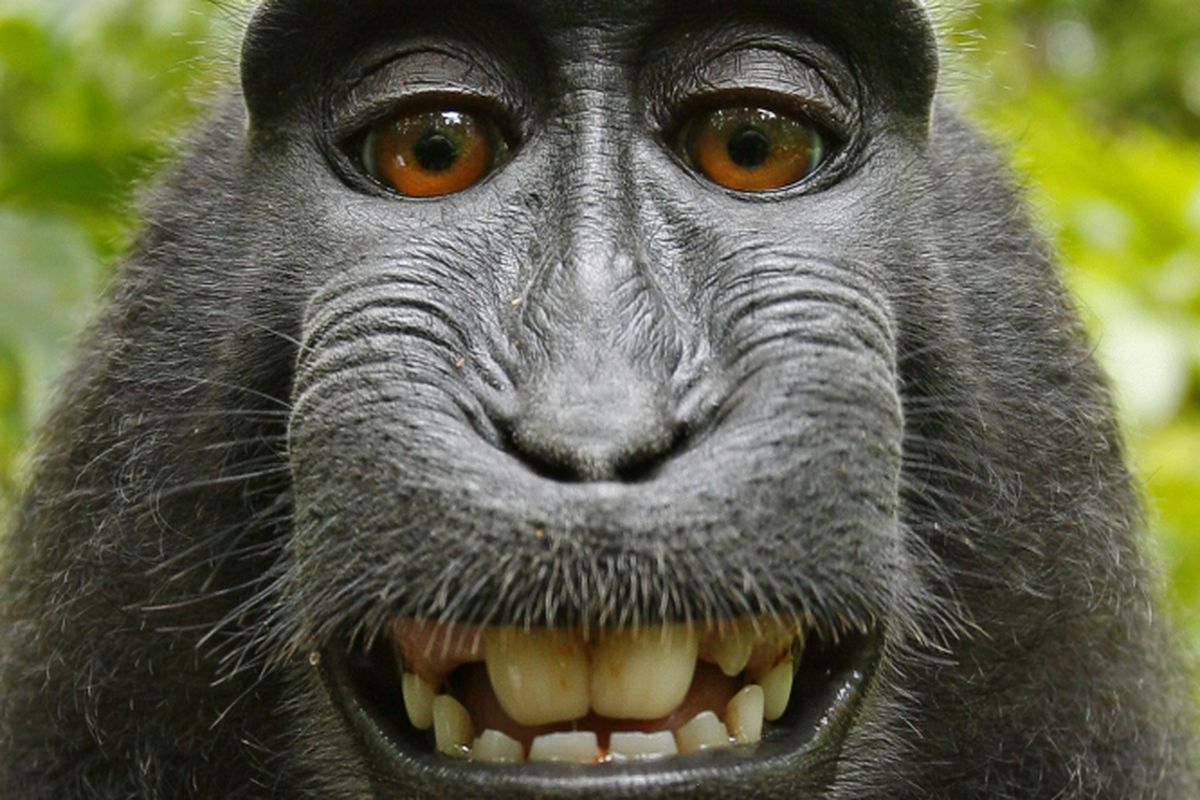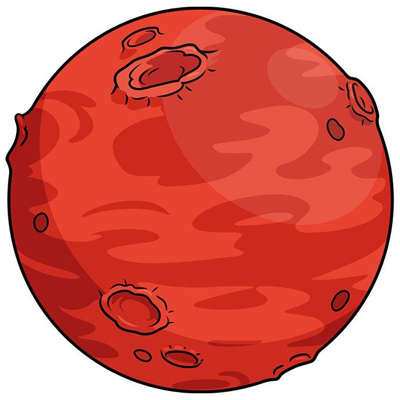That the 13th amendment outlawed slavery.
Nearly anything abouth Pre-Columbian North and South America. Turns out, there was no homogeneous “Native” culture, just as there was no “European” culture. Every different group had their own traditions and stories. They all were complex people, not one-dimensional savages or pacifists. We should simply view them as any other people.
The Bibel
I’ll add that most people think Noah took two of each animal onto the ark. It was seven of the male and female of the clean animals, and two of the male and the female of the unclean animals.
Birds!
That the first amendment and free speech are the same thing
I always think about when I was taught about taste and the human tongue back in grade school, they had these diagrams about zones on the tongue corresponding to sweet, sour, bitter, etc. like a “taste map”. I’m not sure how many generations were taught about it but turns out it just isn’t true at all. So, not like it’s important but you got a lot of misinformed folks out there in regards to taste lol
That always confused me as a child, since it was super easy to just test it for yourself. Turned out salt tasted salty regardless of where on your tongue it was, the same for the rest of the flavors.
Yup I remember thinking to myself at the time that I must be tasting incorrectly or somehow my tongue is different from everyone else lol.
For anyone interested https://en.wikipedia.org/wiki/Taste#Functional_structure
I wonder why they teach it too. Why teach misleading information that has no benefit but give people a wrong impression on how taste works
Most school science is oversimplification by design. It’s part of the learning process. Yo first learn colors, then when you are ready can learn about wavelengths, color spaces, biology of the eye, color psicology and many many other knowledge fields.
Even when you get into the anatomy of the eye you get “false” information, like the “perfect” cones that only percibe one color, or the misconception that every color is equal. More advanced education gives you more context and nuances.
In the taste and tongue case can be useful to explain that senses are the product of discrete sensors. That you don’t taste with your tongue but with specialized little taste buds. The different concentrations are mostly real, so the tongue map is a first step, even being so so far from the objetive and complex truth.
The problem is people that think they only need whatever high school education they got to be experts in pandemics, gender, biological sex, business, economics, history, politics and everything else.
Take note that I’m not only talking about a formal education. You can really learn a lot (most things? Maybe everything?) by yourself. But you have to be critical with your sources. You have to know how to learn. You have to understand how little you know about everything and how much you still have to learn.
Most “do your own research” people in the internet do not do actual research, don’t know how to do research and I don believe they know what research is.
That by not being ridiculously overtly bigoted, they have actually interrogated and rejected their own bigotry. The former is basic and mostly relies on social conditioning. The latter requires reading history and people who are criticizing things with which you may identify and therefore take very personally. The latter is not taught in school and school does not provide the tools (outside of literacy) to do so, so it’s a difficult, painful, abd regrettably rare thing to see, usually requiring sone trauma to change.
Going through the process of discovering I was trans and surrounding myself with trans people really made me re-examine how little work I’d done on issues of race, among other things. So many of the little passive aggressive things I found myself getting annoyed at cis people doing, I also found myself doing to people of color. Nothing particularly awful, but definitely inconsiderate.
In this regard I’m probably an ignorant simpleton, so what would be an example of common behavior that people think is fine but is in fact inconsiderate or offensive to others?
100%! And it’s structurally ingrained, so it involves a very un-fun process of relearning certain habits that don’t feel that bad until you force doses of empathy on yourself, the latter of which I think is in the neighborhood of your experience. It means you have to criticize, forgive, and change yourself, which I personally don’t enjoy even though it’s so important.
PS happy pride!
That looking too closely at the screen will blind you or damage your eyes. This myth originated decades ago in the 1960s from an advertisement by a television manufacturer. Basically in 1967 General Electric reported that their color TVs were emitting too many x-rays due to a factory error, so health officials recommended keeping children and pretty much anyone else at a safe distance from the screen. The problem was soon resolved, but the myth endured.
If you ask me I would say that x-ray radiation has little to do with going blind, I have no idea if radiation can actually make you blind, but it’s funny how somehow eye diseases got in the way as the only possible consequences in the myth just because we use our eyes to watch TV.
Good ol’ desktop particle accelerators.
CRT screens generate bremsstrahlung (x-rays) from slowing electrons, so the front piece of glass is normally made of lead glass, or barium-strontium glass to block it.
After the General Electric incident, testing showed that nearly every manufacturers TVs were emitting too many x-rays. This led to the recommendation to stay 6 ft. away from the TV when it was on. The FDA then later imposed limits on how much radiation a TV was allowed to emit.
With the these regulations, if you were to absorb all x-rays from a CRT for 2 hours a day, every day, you would get 320 millirem per year (comparable to the average US background radiation of 310 millirem per year). See here, as well as this article.
Edit: Also, significant doses of x-rays can blind you. Radiologists in medicine particularly have to shield against it, since they are exposed to it every day, and exposure builds up. See here and here.
Edit again: Wasn’t paying enough attention. That last source talks about ionizing radiation specifically, so not x-rays.Mmm. I worked on CRT screens when I was in the US Navy and had some CRT monitors in the past.
After a long session, my eyeballs 100% felt ‘burnt’ inside.
Thinking that there are different learning styles probably helps poor teachers develop better content though.
Wait does that mean I’m just dumb?
… people say they have visual photographic memories, and I know musicians who can sit at a piano and play a song they only heard one time. But I don’t have any idea of the percentage of people who have these talents.
With !neurodivergence@beehaw.org you can clearly find patterns of minds who have problems with language processing. I personally do better with reading than I do auditory language.
the internet is full of people with problems with language processing 😃
Exactly.
WiFi/Cell phones give you cancer. Both devices operated in the microwave spectrum, at or below 1 watt of power. That’s about the same amount of power as the flashlight on your phone but in a wavelength so unenergetic that you can’t even see it. You could put the phone in your mouth and get absorb less energy than just walking outside into the sun.
I get your point but the sun does give you cancer.
Hmm, that sweet glow of Atom
Americans: You’re not tired after eating Thanksgiving dinner because of tryptophan in the turkey, you’re tired because you ate a lot of food.
That the average person will swallow 8 spiders a year in their in their sleep.
Spiders Georg really threw the average off
Every one knows that its closer to 1000 spiders.
At the risk of upsetting people, most if not all religions. They can’t all be right.
deleted by creator
I think that a lot of Atheists oversimplify religion. (NB: I’m Atheist myself.)
“True” and “false” only apply to statements about reality (epistemic). And sure, religion has a lot of them: “God exists”, “if you fornicate you’ll go to Hell”, “the world was created in seven days” etc. I think that most of them are false.
However a religion isn’t just its epistemic statements. It’s also morals, practices/rituals, and a community. Those things cannot be true or false, because they are not statements about reality. You need another ground to refer to them, as “good” vs. “bad” (deontic).
Yeah, but atheism does not mean nihilism. It doesn’t even mean opposing religions in general. It simply means you do not believe in a higher (or multiple) being often referred to as “god”.
Do I believe in the power of love? Yes! Do I spiritually put my family and friends over anything else? Yes! Do I believe that I need to help people, even though it is not beneficial for me? Yes! Do I believe that placebo works? Yes! …
I’m aware - and that’s part of my reasoning.
Atheism itself isn’t even a whole set of epistemic statements. It’s lack of belief in one statement. It doesn’t imply any sort set of values (like nihilism, secular humanism, satanism… or even the ones from the religions), nor give you any practice (no mass, no “it’s Salah time, drop what you’re doing for a prayer”), nor it makes you part of a community (much more than “we don’t believe in centaurs, we should hang around togerther” would).
And Atheists often transpose that into religion, oversimplifying it into “you believe in one or more gods”. But religion was never just that, it’s a lot more things. And most of those things can be good or bad, healthy or unhealthy, but not true or false.
I agree, but I’m not sure where someone stated something like this in this thread? Especially because the initial post followed a completely different logical reasoning.
OP asked “something many people believe but is not true”. The other poster replied “religion”. I’m showing that religion contains things that are not true, but religion as a whole cannot be true or false.
haha it depends, for religious people their credence is everything in their life, is their true. Of course I am with development of reason and science, but, as Adorno said once, if you retire a system of credence from people who have not known something more than religion, their entire life loose all its content… that’s why I also learned to be more shy to argue about others people religious feelings, believings, because it is something very respected and symbolized. Also, Hegel said that religious thought is like a “phase” of “society thought”, a phase that has be to analized and lived by every person (and lived by the society itself)…
Yea I more or less agree with that sentiment. I myself am an athiest but I view religion in general as a coping mechanism, and real or not if you take away coping mechanisms then you risk doing actual harm to people(psychologically), which is why I try to be as anti-evangelical and secular as I can. I just wish people would stop using it as justification for the shitty things they do. I wouldn’t mind more people thinking like I do but they have to come to that conclusion on their own.
I have the same thought, and is the primary reason why I’m agnostic. I commented this elsewhere in this thread that might be relevant here too:
I’m an agnostic and I read this book called “The God Theory” by Bernard Haisch. The author is a man of science and approaches this problem from a (semi) scientific perspective.
Over the course of the book, he makes hypotheses and challenges them and eventually arrives at a theory that seems a workable explanation of the state of the world and religion in general.
It’s a very interesting read and I would 100% recommend it.
You have to completely decharge batteries before recharging them.
For modern lithium batteries, that is even harmful for the battery.
I think it depends on the battery type but I am not sure
Yeah it’s a thing for Nickel-Cadmium batteries which aren’t used much anymore.
That trans women on hormones have a significant advantage in sports
From: https://www.bbc.com/sport/61346517
*Tucker: When boys reach the age of 13-14, things start to change physically and we see increased muscle mass, bone density; [it] changes the shape of the skeleton, changes the heart and the lung, haemoglobin levels, and all of those things are significant contributors to performance.
Lowering the testosterone has some effect on those systems, but it’s not complete, and so for the most part, whatever the biological differences are that were created by testosterone persist even in the presence of testosterone reduction - or, if I put that differently, even after testosterone levels are lowered.
It leaves behind a significant portion of what gives males sporting performance advantages over females.*
So i guess it depends on when the transition happens?
Nah. There’s a million studies that look at isolated physical traits, but mostly have one of two common problems. 1) they are often written by people with an explicitly anti trans inclusion bias and 2) they look at physical traits in isolation without attempting to quantify if and how those traits apply to sports.
If trans women can out perform cis women, it only takes one to set a women’s world record, yet that just doesn’t happen. There are often articles claiming this has happened, but when you look closer, it turns out that they’re talking about age/regional/federation specific records that are mis presented as world records.
If trans women out perform cis women, we should expect to see them more likely to end with podium finishes than the cis women they’re competing with. It should be pretty trivial to gather the data and show that advantage. But it doesn’t happen, because the truth is, trans women are on average, more likely to under perform compared to cis women.
No study that looks at a trait in isolation and makes educated guesses about the effect of hormone replacement on that trait is ever going to tell you how real world sporting outcomes will be impacted.
The only thing that will tell you that is actual real world sporting results, and the limited results we have so far don’t show any hint of an advantage. If it is in there, it’s small enough that it’s not immediately obvious. We both know that if it was obvious, the media would be screaming it from the hills.
Some numbers. There are 50,000 athletes in the Olympics each year. From memory, there have been 4 or 5 Olympics in which trans people have been able to participate. So, that’s at least 200,000 athletes participating in that time. Now, trans people make up 1% of the population. Lets say that trans people are 10x less likely to get involved in sports though due to external factors. Using those numbers, 1 in 1000 of those 200,000 athletes should have been trans, which comes out 200. Lets say trans people are 100 times less likely to participate in sports. Even then, we should have seen 20 trans athletes. And those athletes should have got more gold medals than you would expect. Instead, we have had exactly 1 trans woman athlete in that time, and she came last in her event.
That’s what people are afraid of.
No amount of articles about testosterone and puberty change the reality that people are trying to exclude a vulnerable minority to solve a problem they can’t even show to exist in the first place.
This was extremely informative, thank you!
Regarding the number part: what if there were athletes that did not come out yet? (I don’t know how it works, totally ignorant on the matter)
Then for the rest I see what you mean. I guess my opinion as a science guy is to do more tests (like, let them openly compete, more data more sense)
Regarding the number part: what if there were athletes that did not come out yet?
I’m specifically talking about trans women on hormone replacement therapy here. There is no significant movement towards including trans women not on hormone replacement in women’s sport at elite levels.




















